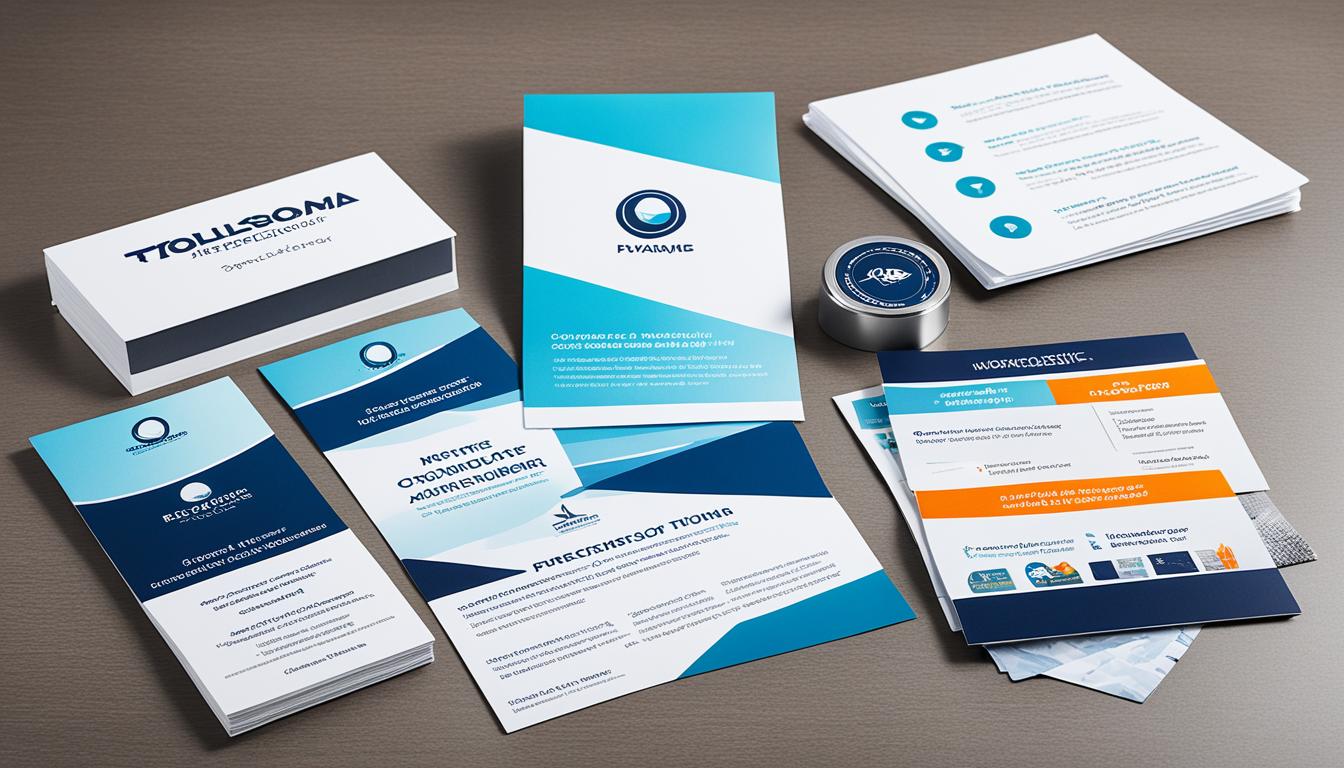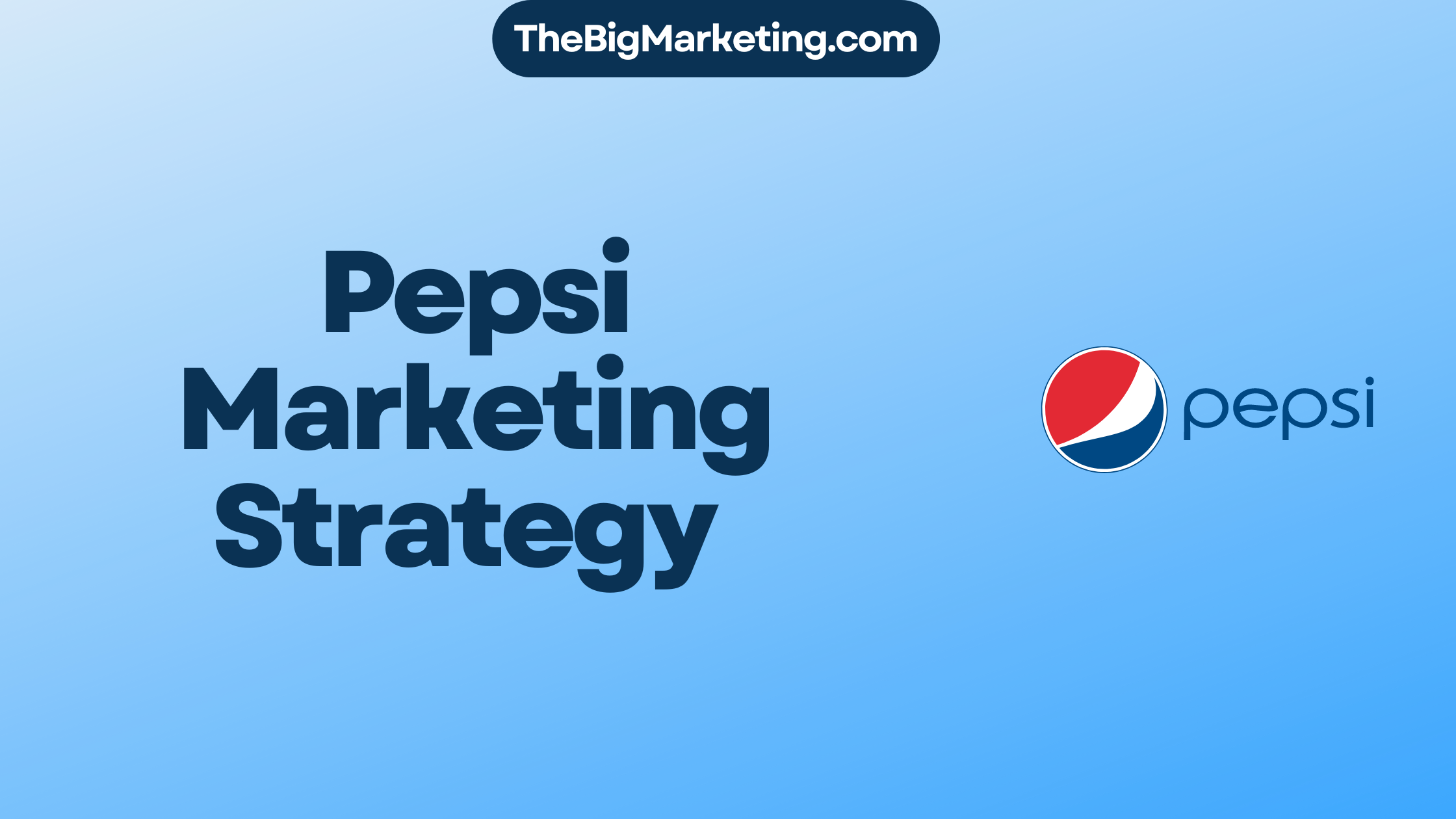Concentrated marketing, also known as niche marketing, is a strategy where companies focus on a specific customer group. By pouring all marketing efforts into a single market segment, businesses can be more effective and edge out competitors.
With concentrated marketing, companies pick out a clear market segment. They shape their marketing to match this group’s specific needs and likes. This helps companies stand out, earn customer loyalty, and boost their profits.
Concentrated marketing looks for a smaller, distinct part of the market to serve. It offers solutions that others might miss. Focusing on a niche helps companies provide extra value, save time, and really connect with their customers.
- Concentrated marketing, also known as niche marketing, is a strategy where companies focus on serving a specific customer group.
- By tailoring their marketing mix to meet the unique needs and preferences of the target market, companies can differentiate themselves and build brand loyalty.
- Concentrated marketing allows companies to identify and serve a smaller, unique segment in the market, creating added value and saving time and effort.
- Successful examples of concentrated marketing include companies like Warby Parker, Dollar Shave Club, and Peloton.
- Implementing a concentrated marketing strategy requires thorough audience research, channel selection, and messaging development.
Concentrated Marketing Definition
Concentrated marketing, or niche marketing, means focusing all marketing efforts on a particular group. This tactic zeros in on a single market segment. The aim is to maximize impact and stand out from competitors. By doing this, businesses can make their brand more appealing, keep customers loyal, and boost their earnings.
This strategy revolves around picking out a market segment with specific traits. Then, businesses tailor their offerings to meet these needs. By concentrating on just this niche, they can craft more impactful marketing messages. This brings value that sets them apart from the competition.
At the heart of concentrated marketing is the idea that niches don’t just appear. They are found by spotting market gaps and filling them. Serving a particular customer group lets businesses become their first choice.
Key Elements of Concentrated Marketing
Concentrated marketing has several crucial components:
- Market Segmentation: This strategy splits the broader market into smaller segments with shared traits. These could be based on demographics, lifestyles, or buying habits.
- Customer Group: It focuses on a specific customer segment. This group is chosen for their unique needs and behaviors.
- Tailored Marketing Mix: The marketing mix is customized for the target customer group. This covers product features, pricing, how it’s sold, and how it’s promoted.
- Competitive Advantage: By focusing on a niche, businesses can outshine wider-market rivals. They become known as specialists in their area, offering something truly unique.
Adopting a concentrated marketing strategy can greatly benefit businesses. It helps them become leaders in their niche, earn customer loyalty, and grow sustainably. All by aligning their efforts with the specific wants and needs of their chosen market segment.
Concentrated Marketing Strategy Characteristics
Concentrated marketing strategy focuses on a single market segment. It lets companies sharpen their marketing to meet that segment’s unique needs. This helps them stand out and gain a competitive edge.
Key features of concentrated marketing include:
- Serving one specific market: This strategy finds a need in the market that others might miss. By offering a special solution, companies can create a new segment for themselves. They become the top choice for their target customers. This makes them different from competitors and increases their share in the targeted segment.
- Adoption by smaller firms: Concentrated marketing is perfect for smaller companies or startups. It allows them to focus their efforts on a distinct group of customers. This way, they use their limited resources wisely. They can cater to their audience’s preferences better. This builds strong relationships, satisfaction, and loyalty among customers.
- Focusing on problem-solving: Different from trying to please everyone, concentrated marketing is about providing answers. It shows how a business’s core value tackles specific issues or fulfills particular needs of its target market. Presenting themselves as problem-solvers draws in customers looking for precise solutions to their challenges.
Example:
| Characteristics | Description |
|---|---|
| Serving one specific market | Find a unique problem in the market, offer a solution, and create a new segment. |
| Adoption by smaller firms | Smaller companies save time and effort by focusing on a narrow audience to build strong connections. |
| Focusing on problem-solving | Showcase the company’s core value by addressing specific challenges or needs of the target market. |
Concentrated Marketing Examples
Let’s look at three examples of concentrated marketing in action:
Warby Parker
Warby Parker targets millennials who love style but don’t want to spend a lot. They’ve shaken up the eyewear market. With trendy and wallet-friendly options, they’ve won over their target market.
Dollar Shave Club
Dollar Shave Club focuses on men fed up with overpriced razors. They’ve built a strong following. By offering budget-friendly, convenient razors, they meet their customers’ needs perfectly.
Peloton
Peloton targets wealthy customers who want premium exercise gear and classes. They’ve grown massively by serving this niche market well. Peloton is now a top name in fitness tech.
Warby Parker, Dollar Shave Club, and Peloton show the power of concentrated marketing. They’ve each found a specific customer group. And they’ve stood out from competitors, earning customer loyalty.
Concentrated Marketing in Sports Tourism
Sports tourism is a special part of the travel world. It focuses on people traveling for sports events. These include professional athletes, officials, and fans from across the globe. The market covers various groups like athletes, coaches, and sports enthusiasts.
Different groups in sports tourism want different things. Companies can use targeted marketing to meet their specific needs. This way, businesses offer tailored services to athletes, officials, and fans. This strategy helps businesses stand out, build strong relationships, and make customers happy.
For instance, a travel company can create special packages for athletes. These packages can offer easy travel, housing near training spots, and top-notch sports facilities. Focusing on athletes allows a company to offer unique experiences. It helps improve an athlete’s performance in tournaments.
Companies can also target sports fans going to leagues. They can make travel packages that include game tickets, stays near arenas, and special experiences. Like meeting pros or watching team practices up close. By knowing what sports fans like, companies can offer unforgettable moments. This strengthens fan loyalty.
In the end, targeted marketing lets companies in sports tourism serve various groups better. By knowing what athletes, officials, and fans prefer, they can fine-tune their marketing. This leads to amazing experiences that connect with their customers.
Concentrated Marketing for Remote Workers
Remote working has grown, highlighting a new market for businesses. These workers often struggle with managing their time, creating a good workspace, and teamwork. Companies can offer specialized products or services to help with these issues.
Firms can provide tools for better time management like apps or software made for remote teams. They can also create items for a better work setting, such as desks that move or headphones that block noise. These products specifically help remote workers.
Additionally, digital firms can focus on making tools for better team work and communication. This can be apps for managing projects with chat features, tools for video meetings, or platforms for virtual team activities. By tailoring their marketing, businesses can appeal specifically to remote workers and stand out from the competition.
Look at Stretchly, for example. It’s an app that reminds remote workers to take breaks for better mental health. Stretchly targets a specific problem in remote working and offers a unique solution, capturing a niche market.
Table: Concentrated Marketing Strategies for Remote Workers
| Challenges Faced by Remote Workers | Potential Solutions |
|---|---|
| Time management | Time tracking apps, productivity tools |
| Setting up a productive workspace | Ergonomic furniture, noise-canceling headphones |
| Effective collaboration | Project management apps, video conferencing tools |
By targeting remote workers’ unique problems, companies can stand out. Tailored marketing strategies let them become leaders in this market. This approach helps businesses connect with remote workers, offering real solutions to improve their work life.
Advantages of Concentrated Marketing
Concentrated marketing, or niche marketing, has several benefits for businesses. It helps in bettering their market strategies and staying ahead in competition. By focusing on a certain group, firms can reduce costs and see less competition. This boosts their profits and raises their place in the market.
Cost Reduction
Cost saving is a big plus of focused marketing. Companies spend less by aiming at a special group. Unlike wide-range marketing, this strategy helps in using resources well and cutting down on marketing spend.
Reduced Competition
Another benefit is less competition. Companies face fewer rivals by concentrating on a special group. This focus helps them stand out and win a big part of their market. They serve their target group’s needs uniquely.
Take a small vegan restaurant as an example. It targets plant-based diet followers. This focus helps it stand out from bigger, broad-range restaurants. With special menus and marketing, it draws people looking for vegan food. This grows its customers and income.
| Advantages of Concentrated Marketing |
|---|
| Cost Reduction |
| Reduced Competition |
Tips for Implementing Concentrated Marketing
For a successful concentrated marketing plan, you need good planning and execution. Here are some easy tips to implement a focused marketing strategy:
-
Get to know your audience:
Start by researching your target audience to tailor your marketing. Learn what they need, what motivates them, their likes, and what problems they face. This will help you make better marketing choices and create messages that speak to them.
-
Choose your channels:
After researching, pick the channels where your audience hangs out. Think about where they’re most active. This could be social media, specific websites, or niche magazines.
-
Get creative and build your messaging:
Create messages that hit home with your audience by addressing their unique needs and issues. Make sure your brand stands out. Explain how what you offer fixes their biggest problems.
-
Test and track:
Keep an eye on how your marketing campaigns are doing. Use the data to improve and finesse your strategy. Focus on metrics like conversion rates, clicks, and how much people engage to see if your concentrated marketing is working.
By following these tips, you can make the most of concentrated marketing. Understand your audience, pick the right places to reach them, create meaningful messages, and always look to improve. This way, you’ll stand out and do better than your competitors.
| Tips for Implementing Concentrated Marketing |
|---|
| 1. Get to know your audience |
| 2. Choose your channels |
| 3. Get creative and build your messaging |
| 4. Test and track |
Future Growth and Expansion
Concentrated marketing, or niche marketing, is a common strategy for new companies or small businesses focusing on local markets. This strategy can lead to quick growth in sales revenue.
By aiming at one main audience and select channels, businesses save money and see faster, better results. This early success prepares them for growth and entering new markets. They build brand loyalty and boost profits along the way.
With a solid market presence, companies can then look at new segments for growth. Concentrated marketing helps them understand their customers well. This gives them an advantage in new markets.
Trust and loyalty from the first market help companies move into new areas. Through niche marketing, they gather a base of happy customers. These customers are likely to support them in new markets. They also spread good word-of-mouth.
Learning from a specific segment leads to new products and innovations. Companies can then offer products that appeal to more people.
In summary, concentrated marketing is efficient and effective from the start. It not only saves money but also produces focused results. This strategy builds a strong base for future growth. By knowing their niche well, companies can expand successfully into new markets for long-term success.
Conclusion
In conclusion, niche marketing is a powerful tool. It lets companies zoom in on a specific group of customers. This way, they can offer products that truly fit what these customers want and need.
This type of marketing helps companies stand out, build brand loyalty, and boost their profits. When done right, it gives companies an edge by making their marketing efforts hit the mark. It’s all about knowing your customers well and offering them just what they’re looking for.
Products that meet the unique needs of a niche market strengthen the bond with customers. This can lead to a solid market standing. And in the long run, it opens doors to reach even more customers.







